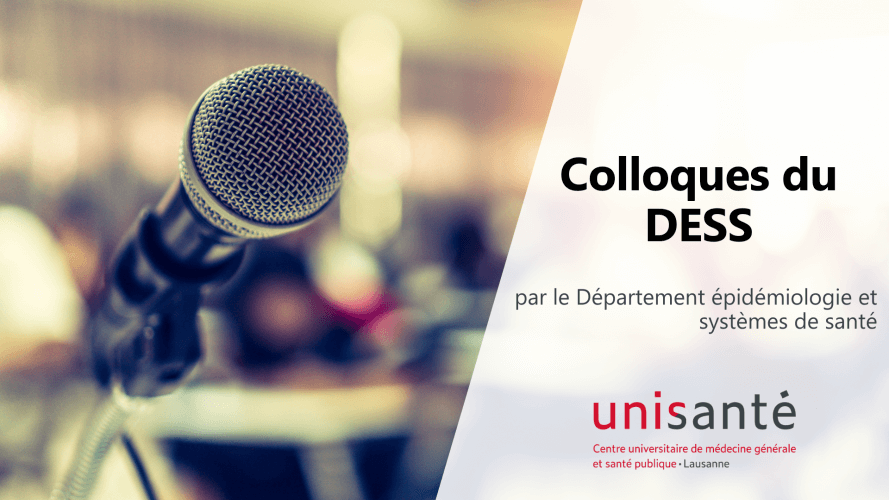Lieu
CHUV, auditoire Jéquier-Doge (BL08.1132)Rue du Bugnon 44
1011 Lausanne
Stimuler la réflexion, s’ouvrir à de nouvelles perspectives, suivre l’actualité des recherches, des pratiques et des initiatives en santé publique, débattre: autant de fonctions remplies par les colloques du Département épidémiologie et systèmes de santé (DESS). A chaque session, des spécialistes d’horizons divers viennent présenter l’état de leurs recherches, leurs expériences ou leurs projets.
Ces colloques, ouverts au publics, s’adressent à un large public de professionnel·le·s de la santé. Ils sont recommandés par la Société suisse des spécialistes en prévention et santé publique (SPHD) pour la reconnaissance de la formation continue.
The implementation of a FAIR (Findability, Accessibility, Interoperability and Re-usability) data management strategy requires to manage the whole lifecycle of data in an integrated fashion, from the creation (generation or acquisition) up to the deletion (or long-term conservation) of the data.
The data lifespan includes several transformational steps, including data transfer, data transformation and management, data analysis and - optionally - data publication with or without access restriction depending on the nature of the data and the published study. Thus, aggregated statistical data may ultimately become fully public - as supplementary data in a published article - whereas participant-level data, collected in the context of personalized health research or a clinical trial, will have to be safely stored for at least 10 years. Whatever steps are punctuating the data lifecycle, the ability to carefully monitor those steps is paramount in FAIR.
Within this context, dataset catalogues, which keep track of the existence of datasets and under which conditions they can be accessed, are cornerstone of any data lifecycle management infrastructure. Such catalogues must provide effective instruments to search and browse available datasets. It must also provide a rich description of the data with a plurality of accurate and relevant attributes (e.g. contents of the data, size of the population), so that the researcher can initiate a sufficiently informed dataset request and not waste time asking for data, which would not be relevant for their research. In the context of secondary usage of datasets, these catalogues are needed to link back the enriched datasets to the original data.
We will report on the current status of the work conducted within a dedicated SPHN working group and will survey the main outcomes, including the main architectural options, the standards supporting the description of the data, as well as the main dependencies with the SPHN ecosystem (BioMedIT network, Data Access Committee, etc).
Professeur à la HEG / HES-SO Genève et chef de groupe à l'Institut suisse d'informatique (SIB), Lausanne.
Ce colloque aura lieu en visioconférence sur Zoom. ID de réunion: 830 3639 6869
Retrouvez les enregistrements vidéo des colloques passés sur notre chaîne Youtube.
A venir

En octobre 2025, la majorité de nos activités s'est déplacée au Biopôle de Lausanne.
Auparavant réparties sur une demi-douzaine de lieux, la plupart des activités d’Unisanté a déménagé dans ce site. L'institution s’est installée dans une partie de trois bâtiments répartis autour de la route de la Corniche, à côté de la station de métro Vennes de Lausanne.
Les détails des plans d’accès de nos principales prestations sont disponibles en cliquant sur le lien ci-dessous.
Nous nous réjouissons de vous accueillir dans nos nouveaux locaux.
